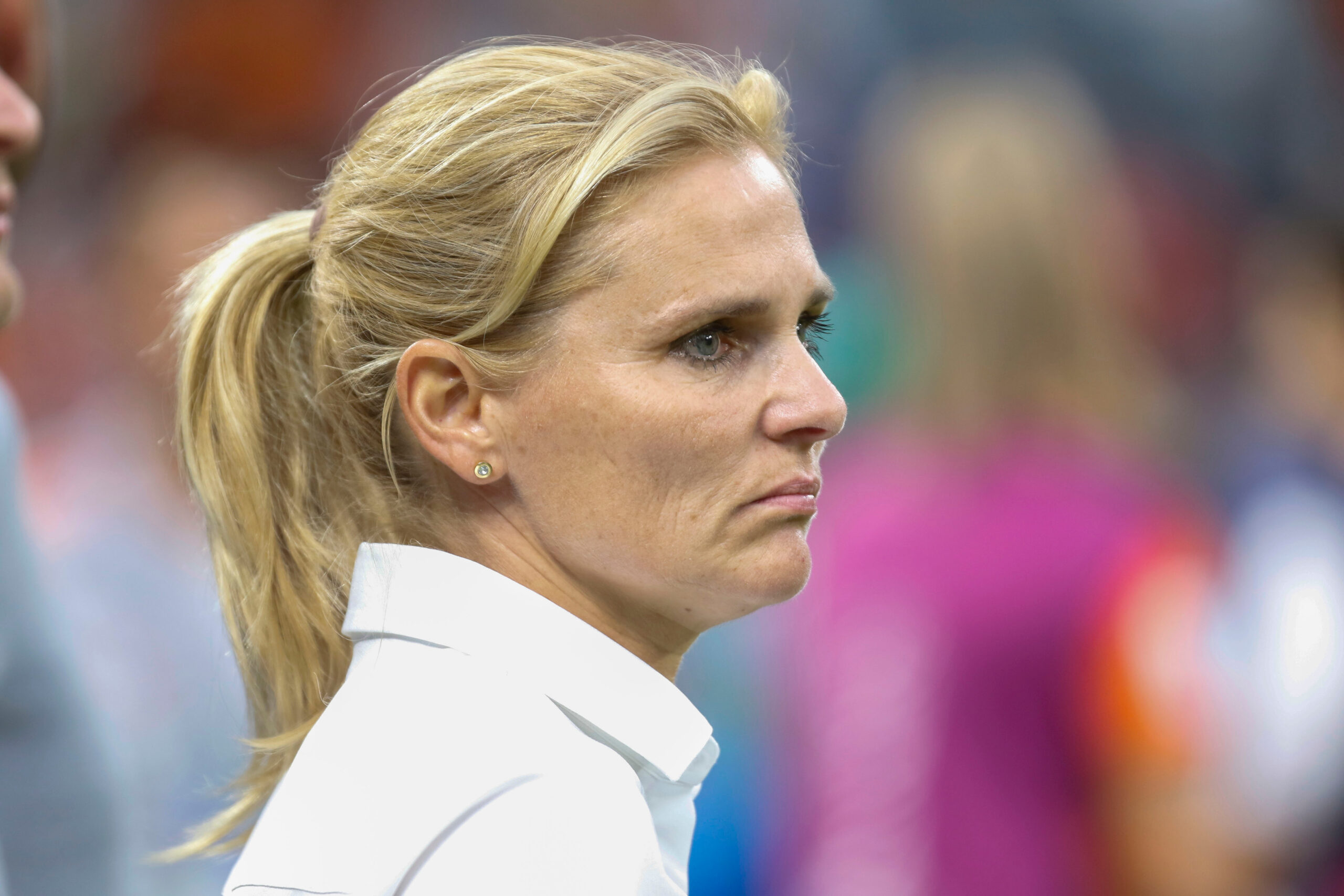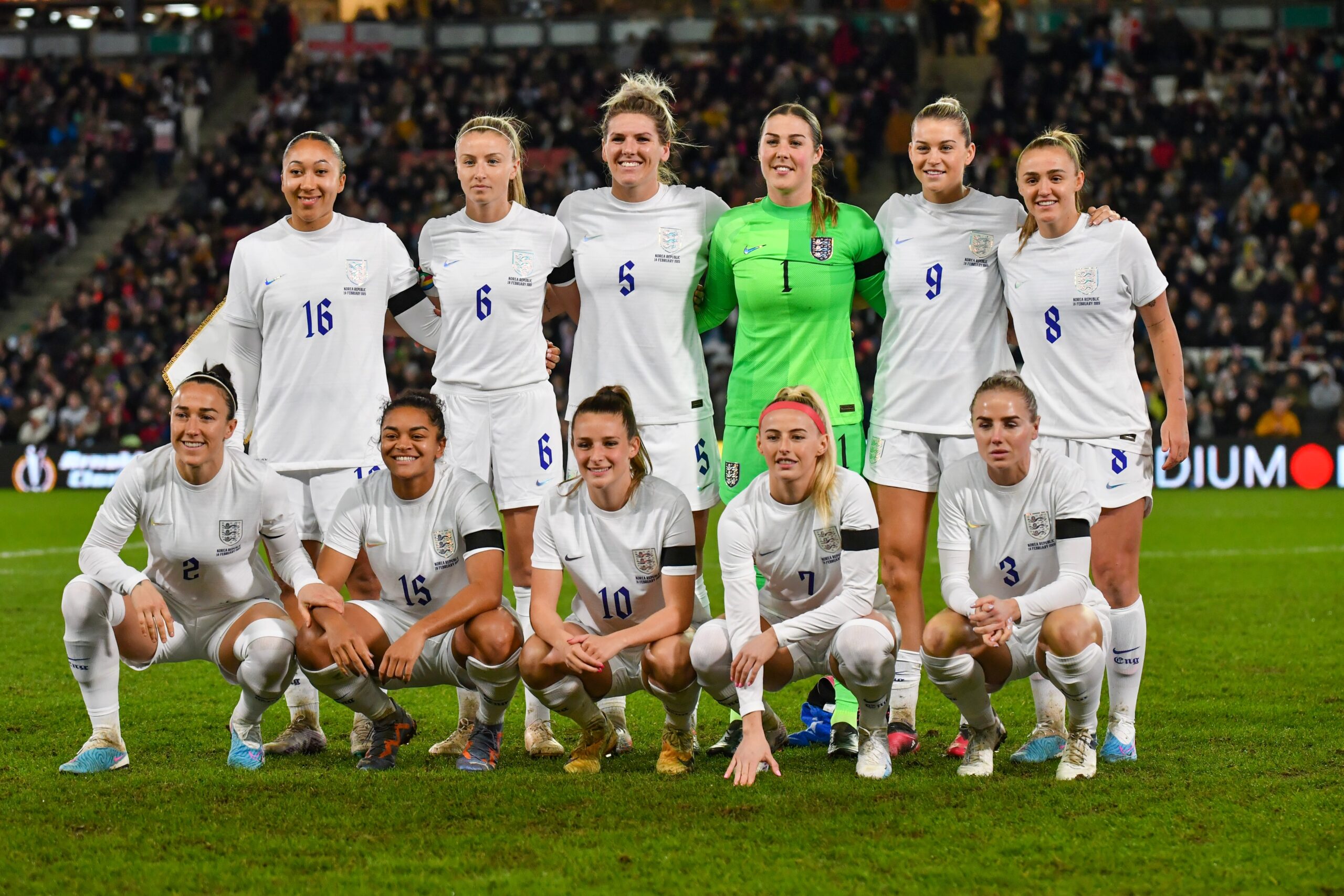In Sarina We Trust - Lionesses leadership lessons from 'the best female coach in football'
- 8 Min Read
Ria Davey, Head of HR Business Partnering & Talent for Bloomberg’s Engineering department, reflects on the recent 2023 FIFA Women’s World Cup and how Sarina Wiegman, who has been dubbed ‘the best female coach in football’ almost led the Lionesses to victory. This article reflects on bite-size leadership lessons we can learn from this fearless manager. Whether you follow football/soccer or not, Wiegman’s approach to leadership is simple, yet extremely effective.
- Author: Ria Davey
- Date published: Aug 24, 2023
- Categories

As the Lionesses touched down at Heathrow Airport, fans gathered around to catch a glimpse of the team they hail as ‘heroes. The Manager credited for much of the team’s success, Sarina Wiegman’s players have described her as a ‘genius’ and praised her for her style and management skills. So, what are the secret ingredients to Sarina’s success and what lessons can we take from the pitch into business? A review of the research about her leadership style reveals five key principles that Wiegman tends to use as her guiding philosophies.
1. Set a clear vision, strategy, and goals
If you watched any of the Lionesses’ recent games, it was clear that Wiegman isn’t afraid to spot gaps, seize opportunities, and pivot the team’s strategy fast when things aren’t working according to plan. The Evening Standard has quoted Wiegman stating “We stick to our strategy and plans, and whether we would lose or win now, we’re not going to all of a sudden sit, we call it, on a pink cloud. We stay grounded.”
There is a plethora of research about setting strategy. However, if there is anything we should take away from Wiegman’s strategic approach, it is to have a clear overarching strategy, drill it into every player (employee), break it down to how you get to the overarching goal, and empower people to make their own decisions. In an interview for England Football Learning, Wiegman touches on these key points and emphasizes the importance of having a plan and clarity around it.

Part of having a good vision and strategy, Wiegman explains, is the ability to be decisive. “You have some setbacks with some players that got injured, which was very sad for them, but then you have to switch and say: ‘OK, this is the group of players we think are the best and this is the team now. We are going to go to the World Cup with them.’
Just as in business, where leaders are constantly scanning the external environment and competition, Wiegman demonstrates an intimate knowledge of her opponents’ play, which enables her to make decisions when needed, even if they aren’t always popular.
2. Culture champion
As HR and business leaders, we are all too familiar with the power of culture and how it can differentiate similar businesses and products. Often, this is the line between success and failure. Key principles of building a strong culture – from creating psychological safety and a diverse and inclusive environment to celebrating wins and learning from mistakes – are clear themes entwined throughout Team Lionesses. In an interview with Sky News, Kay Cossington, the FA’s Women’s Technical Director, credits the success of the team and Wiegman to the culture created: “I think it’s the culture that she creates. I think it’s the clarity and consistency in which she operates”.

In the interview for England Football Learning, Wiegman emphasized the importance of creating the right environment for learning. Wiegman refers to trust and instilling team togetherness and confidence. Despite her often-steadfast demeanor on the sidelines, Wiegman talks in many interviews about the importance of having fun. She repeatedly stresses to the press about taking football back to its basics and why you started playing it as a kid – to have fun. She is known to incorporate fun and play into training, sandwiching it between tactical practices. Lionesses Forward Nikita Parris talked about this during an interview for a Sky Sports documentary “Sarina Wiegman, Making a Manager”. She said, “There’s two different sides. She can be serious, but then we have fun and laughter, part because that’s what brings the fun element to the camp’.
A culture of two-way feedback
In addition to a mix of strategy, tactics, and fun, a key ingredient to this winning culture is the art of giving and receiving feedback. Wiegman has mentioned multiple times across the years how important feedback is. It is a two-way street. Feedback must be constant. Whilst encouraging a culture that ensures everyone is giving feedback to everyone, it is easier said than done. Wiegman acknowledges, “You don’t have to be rude to be direct, so I ask the players and the staff, ‘You can be honest.’ It doesn’t mean that you’re rude. Just be direct.”
3. Lead by example – ‘In Sarina We Trust’
You’ve set the vision, strategy, and goals for your business. You’ve clearly communicated each player’s (employee) responsibilities and created a psychologically safe environment where teammates celebrate wins and learn from mistakes. What does a leader do next? They lead by example.
Wiegman sets the tone from the very top and prides herself on knowing her craft so that all around her see her a trusted expert and advisor. The team listens to her, and she demands respect through working hard and expecting the same from everyone else. As the hashtag #InSarinaWeTrust goes viral in and outside the changing rooms, her inspiration and influence can be attributed to her being a self-proclaimed ‘nice and positive person’ who is interested in all members of the team.
When asked, Lionesses Forward Rachel Daly described her manager as “a phenomenal coach, she’s a genius, she doesn’t get enough credit, she’s great to play for. She is great to work under, she’s so honest and her knowledge about the game is a joke, as is everybody on the staff.”
Wiegman herself describes how she builds trust as a leader. “Ask them questions on and off the pitch. Get your hands dirty. Always stay calm and lead by example.”
4. Talent management: Right people, right place, right time
“One team, one dream” reflects the key principles Wiegman is well-known for talking about. In a recent interview with CNN, Wiegman noted, “In a team, you always have to do your best, that doesn’t mean you always have to run the fastest. That’s something different. It’s doing what’s best for the team and what’s demanded of you, on and off the pitch. When you start doing things on your own in a team sport, that’s hard. You’re not going to reach the highest potential.”
Her steely nerves and decisive nature help players focus on the greater good, and, whilst creating an inclusive environment, she de-personalizes tactics by moving chess pieces rather than the person. Wiegman notes, “Sometimes, you will have one individual that can be a game-changer, but that’s short-term. If you want to perform longer-term, it’s all about playing as a team.” (Evening Standard). As leaders, we know you must play to the team’s strengths to win, and Wiegman always personifies this.
5. Growth mindset
Plenty of research examines growth mindsets in leadership and how they can impact performance. For Wiegman, this is the core value that has helped transform England’s women’s football team from cubs to Lionesses. A self-proclaimed positive person who also has feelings, Wiegman may project herself as stoic and unfazed on the sidelines but seems to connect and share her authentic self behind the scenes.
Wiegman is known to encourage risk-taking and communicates that it is okay to make mistakes, as this is how you learn. The key here is to empower while ensuring that everyone takes responsibility for their own actions. When speaking to The Guardian about Lauren James’ red card in a match against Nigeria, Wiegman’s natural response about one of her key players was, “Unfortunately, in life and in football, you make mistakes and this is one of those moments, and she’ll get a hug from me”.
This compassionate, empathetic leadership style, which has gained momentum over the years, is based on a wealth of evidence-based research. Research by Professor Sophia Jowetts of Loughborough University highlights how a relationship between a coach and athlete that is dependent on collaboration, alignment, engagement, risk-taking, regular feedback, initiative, creativity, and confidence reaps substantial benefits.
Individual coaching
Wiegman is also hands-on and invested in each individual’s development. Speaking about her approach to development and coaching, she describes how she continually reflects on performance and how you can make the team and individuals perform at their best. She sends team members old clips of other players in similar positions, share tips, and as previously discussed, provide feedback to ensure they know how invested she is in them.
From a coaching standpoint, Wiegman shares that she doesn’t always answer the team’s questions or tell the players what to do. Instead, she asks them questions to develop a conversation and coaches them to their own conclusions. This transformational approach to leadership focuses on inspiring the team through a shared vision that encourages innovation and creativity.
Lionesses leadership lessons
As business leaders, what are the key takeaways to ingrain in our teams if we take a lesson or two from Wiegman?
Build a clear and concise strategy and set overarching goals for the team to ensure that each employee understands not only the organization’s north star but also their role in achieving it. Provide clarity and ensure there’s an honest and consistent feedback loop that is a normal part of the culture. Show vulnerability and connect with your team on an authentic level, and remember, one of the most important things is to have fun.








